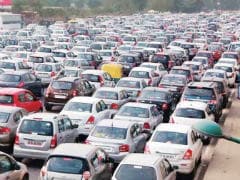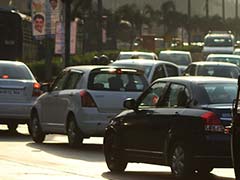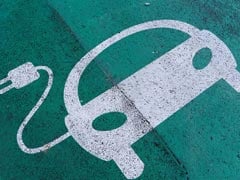Budget 2018: Luxury Cars, Auto Parts To Get More Expensive
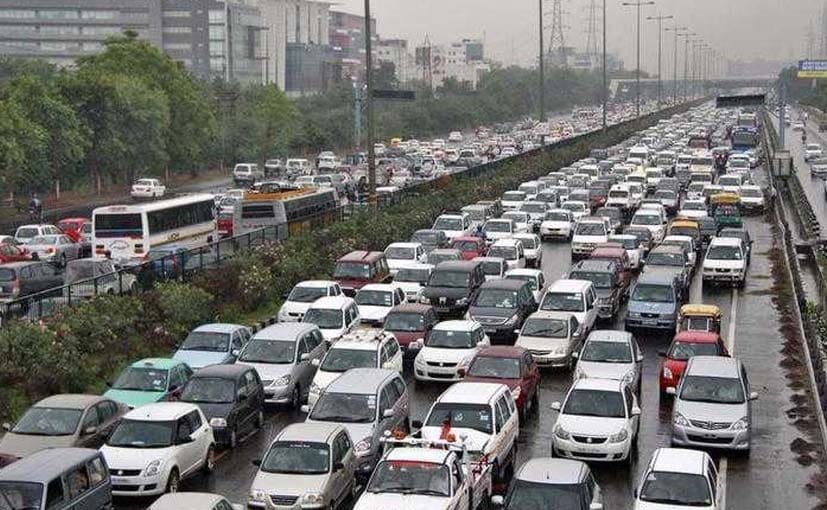
There was a lot expected from the Budget 2018, especially for the automotive industry. While luxury car makers were looking at lowering of GST rates on its cars, electric car makers were also looking to get a push for the industry, considering that the government is heading towards going all electric from 2030. However, none of this was tabled and that was a disappointment. To add to this, the government announced a further hike in the rates of import duty which have been put into place to give way to companies to spend and make in India.
Also Read: Budget 2018: No Respite In GST Rates For The Auto Industry
Finance Minister Arun Jaitley proposed raising the custom duty on luxury vehicles that are not fully made in India but built using kits manufactured outside the country and is finally assembled in India. Those vehicles which include both cars and motorcycles are imported into the country through kits for assembly here is all set to become costlier because the custom duty has been raised from 10 percent to 15 per cent. Most of the engines that power luxury cars are not made in India and are imported and assembled here. The hike impacts luxury car and bike manufacturers like Mercedes-Benz, BMW, Audi, Volvo, Jaguar Land Rover, Harley-Davidson, Triumph, all of whom have set up assembly plants in India. There are other car makers who want to enter the country, like Tesla, but given the hike in the custom duty now, it's highly unlikely that we'll see the company enter the Indian market this year either.
The prices of the cars assembled in India will see a price revision by a minimum of Rs. 80,000 on cars costing around Rs. 25 lakh. Custom duty on fully imported cars, SUV and bikes has been untouched.
The auto components manufacturers have been most affected by this decision and of course we'll see a hike in the prices of some cars soon, especially those which have a low level of local content in them. The industry of course has taken this into consideration and the overall feeling is that of disappointment.
Also Read: Budget 2018: Expectations For The Auto Industry From Arun Jaitley On Electric and Luxury Cars
Rahil Ansari, Head, Audi India, said, "For the luxury auto sector, the Union Budget 2018-19 is disappointing and is against the spirit of partnership. As manufacturers, we have a core social responsibility towards our workforce and the dealer network. Increase in custom duty and introduction of Social Welfare Surcharge in lieu of an Education Cess (which is higher than the erstwhile Cess), is going to definitely affect the prices again, which will further confuse the customer. The market sentiment had only recently become stable after the introduction of GST Cess. The budget clearly lacks a focus towards the luxury auto industry, which otherwise would have given us a better clarity to plan our strategy for the India market for short and long term. While as luxury car manufacturers, we are undertaking several initiatives in terms of investment to make the dream of owning a luxury vehicle more realistic for all, we also expect the government to support this industry. Lack of concrete measures for government's ambitious E-mobility project is surprising. However, investments in infrastructure and rural electrification are a welcome move as it will have a long term positive impact for automobile sector."
These sentiments were reiterated by Roland Folger, Managing Director & CEO, Mercedes-Benz India "The increase in the basic customs duty of auto parts, accessories and CKD components varying from 5 per cent to 10 per cent, clubbed with the new Social Welfare Surcharge at 10 per cent, at a time when the auto industry is reviving, is unfortunate, and comes as a surprise. We believe it is going to impact the auto industry, the consumers and is also against the spirit of 'Make in India'. The auto industry ended 2017 on a positive note, where it grew despite multiple policy disruptions in the previous year; but the customs duty hike is likely to reverse the growth trend."
Also Read: Government Could Announce Tax Sops For Electric Vehicles In 2018 Budget
However, on the two-wheeler side of things, the Budget 2018 brought in a sense of hope and development. Yadvinder Singh Guleria, Senior Vice President - Sales & Marketing, Honda Motorcycle & Scooter India Pvt. Ltd. said, "The Government announcements in Budget 2018 too should accelerate rural demand. With firm thrust on rural economy is evident from increasing Kharif crop MSP to 1.5 times the production cost. The infrastructure focus of the government is very strong on rural areas and highways. With almost 50 per cent of two-wheeler demand coming from rural and semi-urban India, Budget 2018 should have a positive impact on customer sentiments."
Sudarshan Venu, Joint Managing Director, TVS Motor Company also had a similar opinion and he said, "The Union Budget 2018/19 demonstrates government's intent to boost investments in rural development, education, healthcare and social sectors and will lead to continued and inclusive economic growth. The strong push for infrastructure will also support this growth agenda. The government's focus on supporting local manufacturing, skill development under Pradhan Mantri Kaushal Kendra and a heightened emphasis on job creation will lead to greater opportunities for the youth of the country."
Also Read: SIAM Seeks R&D Incentive In Budget, Support For EV Parts Import
On the electric vehicles front, Mr. Sohinder Gill, Director- Corporate Affairs, Society of Manufacturers of Electric Vehicles (SMEV) said, "As the EV Policy is not a part of the budget, we were not expecting any major announcement related to electric vehicles in today's budget. The only thing we were expecting from the budget was rationalization of GST rate i.e. currently 12 per cent for EVs and 28 per cent for EV batteries. Also, we had requested that GST should be made at least either 0 or 5 per cent for initial years. But we didn't find any mention of the same. Perhaps it will be covered in the policy, later. Overall we are happy with the outcome of the budget."
Latest News
 Bilal Firfiray | Feb 12, 2026MG Majestor vs MG Gloster: What’s New, What’s Different?MG Majestor replaces the Gloster as MG’s new flagship SUV for 2026. Here’s a detailed comparison between the two.4 mins read
Bilal Firfiray | Feb 12, 2026MG Majestor vs MG Gloster: What’s New, What’s Different?MG Majestor replaces the Gloster as MG’s new flagship SUV for 2026. Here’s a detailed comparison between the two.4 mins read car&bike Team | Feb 12, 20262026 MG Majestor: Variants, Features, Specifications ExplainedThe Majestor will be offered in two key trim levels including Sharp and Savvy and in both two-wheel and four-wheel drive variants.2 mins read
car&bike Team | Feb 12, 20262026 MG Majestor: Variants, Features, Specifications ExplainedThe Majestor will be offered in two key trim levels including Sharp and Savvy and in both two-wheel and four-wheel drive variants.2 mins read car&bike Team | Feb 12, 20262026 MG Majestor SUV: In PicturesAlong with the new positioning, the SUV features a heavily updated design and styling; here’s a detailed look at it in pictures.1 min read
car&bike Team | Feb 12, 20262026 MG Majestor SUV: In PicturesAlong with the new positioning, the SUV features a heavily updated design and styling; here’s a detailed look at it in pictures.1 min read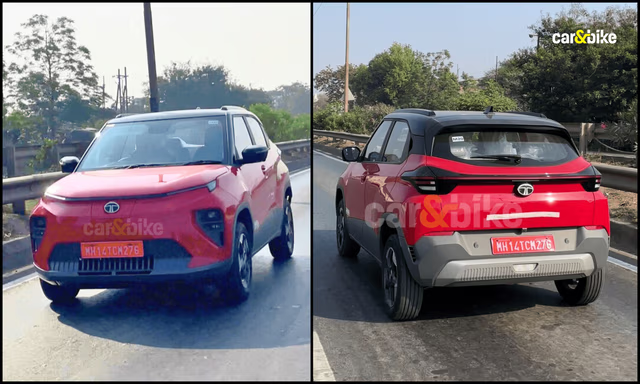 car&bike Team | Feb 12, 2026Tata Punch EV Facelift Spotted Ahead Of February 20 LaunchThe Punch EV facelift appears to be identical to the ICE counterpart.4 mins read
car&bike Team | Feb 12, 2026Tata Punch EV Facelift Spotted Ahead Of February 20 LaunchThe Punch EV facelift appears to be identical to the ICE counterpart.4 mins read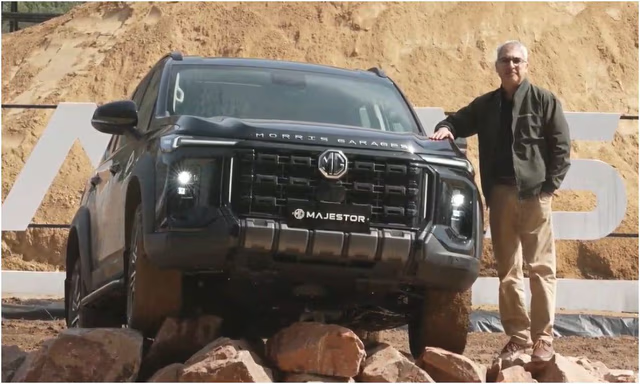 Amaan Ahmed | Feb 12, 2026MG Majestor SUV Unveiled In India Ahead Of April 2026 LaunchReplacing the Gloster in the lineup, the Majestor will be the new MG flagship SUV in India, and deliveries will begin in the month of May.1 min read
Amaan Ahmed | Feb 12, 2026MG Majestor SUV Unveiled In India Ahead Of April 2026 LaunchReplacing the Gloster in the lineup, the Majestor will be the new MG flagship SUV in India, and deliveries will begin in the month of May.1 min read Jaiveer Mehra | Feb 12, 2026Mahindra Eyes Increasing Production Capacity Of ICE & Electric SUVs By Up To 7,000 Units Per Month By Q2 FY2027Carmaker said that currently models such as the Bolero, Bolero Neo and XUV 3XO are being manufactured at peak capacity.3 mins read
Jaiveer Mehra | Feb 12, 2026Mahindra Eyes Increasing Production Capacity Of ICE & Electric SUVs By Up To 7,000 Units Per Month By Q2 FY2027Carmaker said that currently models such as the Bolero, Bolero Neo and XUV 3XO are being manufactured at peak capacity.3 mins read
 Bilal Firfiray | Feb 12, 2026BMW X3 30 xDrive M Sport Review: The Driver’s SUV ReturnsRange-toppingX3 30 xDrive M Sport brings back the fun with 255bhp and genuine enthusiast appeal. Does this performance-focused SUV stand out?5 mins read
Bilal Firfiray | Feb 12, 2026BMW X3 30 xDrive M Sport Review: The Driver’s SUV ReturnsRange-toppingX3 30 xDrive M Sport brings back the fun with 255bhp and genuine enthusiast appeal. Does this performance-focused SUV stand out?5 mins read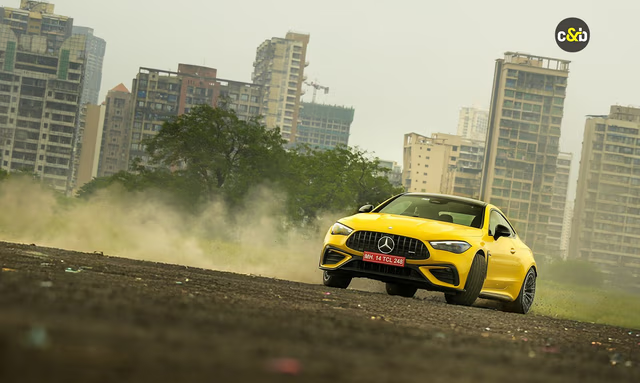 Bilal Firfiray | Feb 11, 2026Mercedes-AMG CLE 53 Coupe Review: The Goldilocks AMG?The Mercedes-AMG CLE 53 Coupe is a concoction of hooliganistic performance and everyday usability. Here’s why this Rs 1.5 crore two-door AMG might be the perfect modern sports coupe for India.6 mins read
Bilal Firfiray | Feb 11, 2026Mercedes-AMG CLE 53 Coupe Review: The Goldilocks AMG?The Mercedes-AMG CLE 53 Coupe is a concoction of hooliganistic performance and everyday usability. Here’s why this Rs 1.5 crore two-door AMG might be the perfect modern sports coupe for India.6 mins read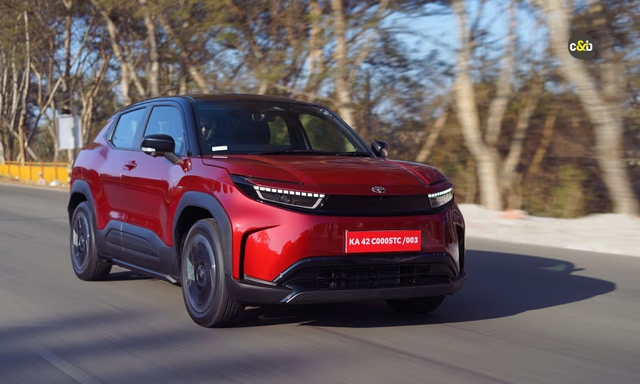 Girish Karkera | Feb 11, 2026Toyota Ebella EV Review: Compact And Fun-To-Drive With The Promise Of Stress-Free AftersalesNo hiding the fact that it is a clone of the Maruti Suzuki eVitara, but the first all-electric Toyota in India is reasonably well-rounded8 mins read
Girish Karkera | Feb 11, 2026Toyota Ebella EV Review: Compact And Fun-To-Drive With The Promise Of Stress-Free AftersalesNo hiding the fact that it is a clone of the Maruti Suzuki eVitara, but the first all-electric Toyota in India is reasonably well-rounded8 mins read Bilal Firfiray | Feb 10, 2026Tata Punch EV Long Term Review: Small EV With A Big-Hearted PersonalityWith the new Punch EV Facelift just around the corner, we decided to take a look at what it excels at and what could be improved.7 mins read
Bilal Firfiray | Feb 10, 2026Tata Punch EV Long Term Review: Small EV With A Big-Hearted PersonalityWith the new Punch EV Facelift just around the corner, we decided to take a look at what it excels at and what could be improved.7 mins read Bilal Firfiray | Feb 4, 2026Volkswagen Tayron R-Line Review: Sensible Flagship For IndiaVolkswagen has introduced a made-in-India flagship SUV that offers space, comfort, performance, and German driving finesse in a practical three-row package. But is the Tayron R-Line good enough?6 mins read
Bilal Firfiray | Feb 4, 2026Volkswagen Tayron R-Line Review: Sensible Flagship For IndiaVolkswagen has introduced a made-in-India flagship SUV that offers space, comfort, performance, and German driving finesse in a practical three-row package. But is the Tayron R-Line good enough?6 mins read
